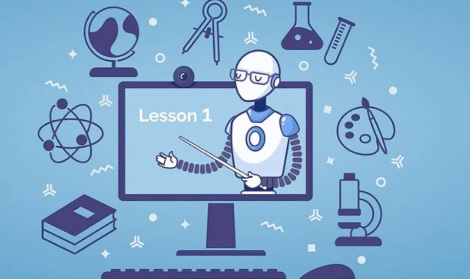
Rethinking credible educational assessment: Focus on artificial intelligence
Artificial Intelligence (AI) has been transforming education in recent years.
Advertisement
This increasing significance of AI has garnered the interest of numerous scholars actively exploring diverse methods to incorporate various AI tools within the classroom environment.
With the increasing availability of data and the growing sophistication of machine learning algorithms, AI has the potential to revolutionise the way we learn, teach and assess student progress.
Several benefits of using AI in education have been advanced for administrators, teachers and learners, such as playing a crucial role in motivating students, raising their engagement levels, learning interest, learners’ interaction, anxiety reduction, prediction of students’ future outcomes and academic performance.
Application of AI tools
Personalised learning such as tools and systems based on AI have the potential to customise learning experiences, boost the productivity of teachers and heighten student engagement.
AI can help automate the grading process by saving time for teachers and providing students with immediate feedback on their assignments.
It can help transcribe, translate lectures and other educational materials, making them accessible to a wider range of students.
Learning management systems (LMS) are platforms that allow educators to create, deliver and manage learning materials, assignments, assessments and evaluations for students.
Computer-based testing platforms allow educators to administer online assessments, including multiple-choice and essay questions.
Formative assessment tools enable educators to monitor students’ learning in real-time, provide feedback and adjust instruction based on their performance.
Interactive whiteboards enable educators to present and annotate digital content, engage students in interactive activities and collaborate with students in real-time.
Video conferencing tools allow educators to facilitate virtual classroom sessions, provide remote instruction and connect with students in remote locations.
Data visualisation tools enable educators to analyse and present data in visual formats, such as graphs and charts, to gain insights into student performance and learning outcomes.
Social media platforms enable educators to connect with students, share learning resources and promote student engagement in learning activities.
Classroom response systems allow educators to pose questions and receive real-time student feedback using electronic devices.
Challenges
The lack of stakeholder participation in developing AI tools for education can be a significant challenge in AI adoption.
One of the primary challenges associated with AI in educational assessment is the lack of transparency in decision-making.
AI algorithms can be biased, leading to inaccurate and unfair assessments.
This is because AI systems are only as good as the data on which they are trained.
The use of AI in educational assessment can lead to a lack of human interaction in the assessment process, which can be detrimental to students’ learning experiences.
AI-powered tools are typically designed to focus on specific assessment areas, such as lower-order cognitive abilities (such as knowledge and comprehension, usually measured with objective test items).
The use of AI in educational assessment raises ethical concerns, such as issues around data privacy and ownership, as well as concerns around using technology to replace human educators.
Another challenge with using AI-powered tools in educational assessment is that educators may have a limited understanding of how the technology works.
Educators must be trained to understand how to use the technology and effectively interpret the results.
Integrating AI-powered assessment tools with existing systems can be a challenge.
The development and implementation of AI-powered assessment tools can be costly.
Adopting AI-powered assessment tools may face resistance from educators, students and parents.
Also, AI-powered assessment tools may affect student motivation and engagement in learning.
This kind of assessment tools are often designed to provide standardised tests that can be used to compare students’ performance.
Furthermore, AI-powered assessment tools require a stable and reliable technology infrastructure.
More so, they generate large amounts of data that must be stored, managed and analysed.
Again, these assessment tools can provide quick feedback on students’ performance but may not offer the personalised feedback and support students need to improve their learning.
Strategies
Developing transparent and ethical artificial intelligence algorithms is very necessary.
Using personalised and adaptive assessment approaches that can account for individual differences in students’ learning styles and needs is required.
To use AI-powered tools effectively, educators need proper training and support.
Educators should collaborate with students to gather feedback on their experiences with the technology.
In order to ensure that AI-powered tools are accessible for all students, educators should consider the needs of students with disabilities and provide accommodations as needed.
It is critical to incorporate human inputs and oversight because AI tools are not infallible.
Regular evaluation and update of technology are needed to keep up with latest advancements in the field.
Ensuring student data security and privacy to prevent abuse of information.
Furthermore, educating students and parents on using artificial intelligence to ensure comfortable usage of AI-powered tools in educational assessment
Recommendation
Educators, policymakers and stakeholders must work together to develop strategies that maximise the benefits of AI in educational assessment while mitigating the associated risks.
AI in educational assessment can ultimately transform education, improve learning outcomes and equip students with the skills needed to succeed in the 21st Century.
The Writer is a PhD candidate at the University of Ghana.



